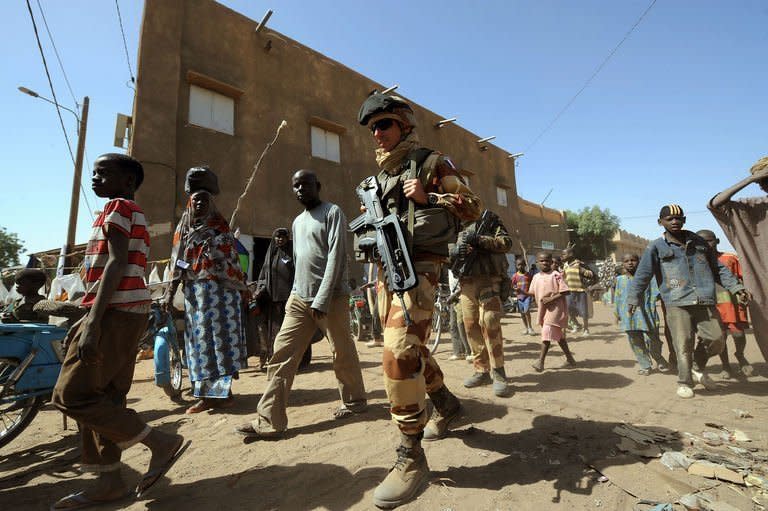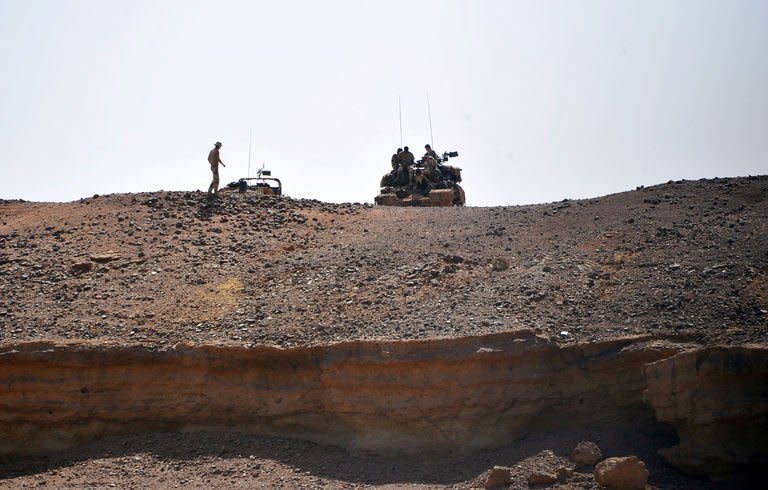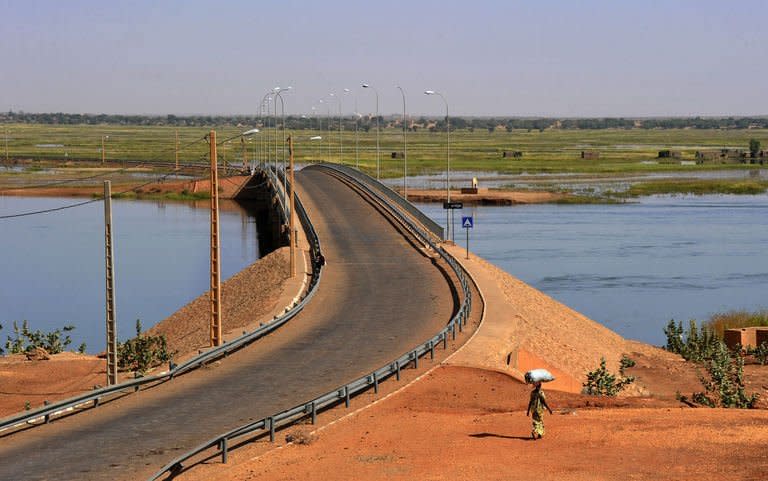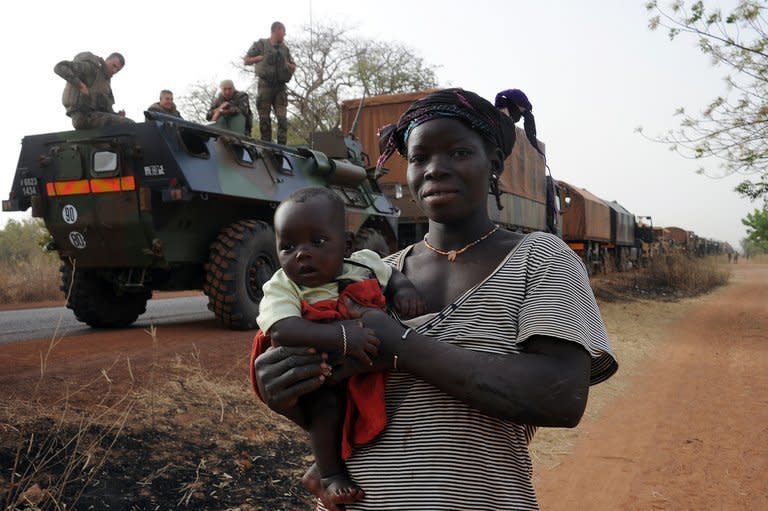France bombs Islamist targets in Mali after Hollande visit
France said it carried out major air strikes Sunday near Kidal, the last bastion of armed extremists chased from Mali's desert north in a lightning French-led offensive, after a whirlwind visit by President Francois Hollande. An army spokesman said 30 warplanes had bombed training and logistics centres run by Islamist extremists overnight in the Tessalit area north of Kidal, where French troops took the airport Wednesday and have been working to secure the town itself. Residents said French and Chadian soldiers had patrolled the northeastern town for the first time Saturday as the rest of the country feted Hollande on his tour, a victory lap that came three weeks into a campaign, so far successful, to oust the Islamists who occupied northern Mali for 10 months. Ecstatic crowds greeted Hollande in the capital Bamako and the fabled city of Timbuktu with cheers of "Vive la France! Long live Hollande!", offering him a camel draped in a French flag. Hollande called the trip "the most important day of my political life". The French-led forces have met little resistance in their campaign to stop Al Qaeda-linked groups from seizing the whole country. Officials say many Islamists have likely fled to the mountainous terrain around Kidal. The situation on the ground in Kidal is delicate, with seven French hostages believed to be in the area and the rebels splintered into factions, with the breakaway Islamic Movement of Azawad (MIA) extending an olive branch by renouncing "extremism and terrorism". The number three leader of the armed Islamist group that controlled Timbuktu, Ansar Dine (Defenders of the Faith), was arrested near the Algerian border by a rival group and taken to Kidal on Sunday, sources said. "Mohamed Moussa Ag Mouhamed... the one who sowed terror, who ordered people's hands cut off, who supported the strict application of sharia, was arrested by an armed group," a Malian security source said. The arrest was believed to have been carried out either by the MIA or their allies the Azawad National Liberation Movement (MNLA), Tuareg separatists who started the rebellion that unleashed Mali's current crisis but then fell out with their Islamist allies. The information was confirmed by Kidal regional official Abdoulaye Toure, who called Mohamed Moussa "the brain of the organisation". The Kidal region borders Algeria, which was reluctantly drawn into the Malian conflict when it agreed to let French warplanes use its airspace. In retaliation, Islamist militants attacked an Algerian gas field on January 16, unleashing a hostage crisis that left 37 foreigners dead. Algerian Foreign Minister Mourad Medelci said Sunday that while there was cause for "optimism" on the situation in Mali, "it is still marked by problems facing Malians and those who are helping them re-establish stability and security." -- 'We don't want war here' -- Israel and the United States had new praise for France's intervention. "I really salute the fact that the French leadership has not just analysed what should be done but go out there and just do it. That's a very good example for the world," said outgoing Israeli Defence Minister Ehud Barak. US Deputy Defence Secretary Ashton Carter also praised the operation. But underscoring the threat of a long-term cross-border insurgency, the Taliban in Afghanistan condemned France and called on Muslims to unite against it and its allies. "The French government has attacked mujahedeen in Mali, and America has also agreed to support France. I ask the whole Muslim world to unite because it is an ideological war," said spokesman Ehsanullah Ehsan. In Kidal, residents told AFP they had seen Chadian soldiers shopping at the main market in the sandy outpost, and witnesses said Chad now had some 150 troops in the town. "We don't know what's going to happen. We don't want war here," said a former town hall employee. With fears the conflict could now turn into a drawn-out insurgency, France is walking a difficult line, eager to hand over the operation to a promised contingent of some 8,000 African troops without abandoning its former colony to chaos. Rights groups have reported a grim backlash against light-skinned citizens seen as supporters of the extremists. With fears of reprisal attacks high, many Arabs and Tuaregs have fled. In all, the crisis has caused some 377,000 people to flee their homes, including 150,000 who have sought refuge across Mali's borders, according to the United Nations.





